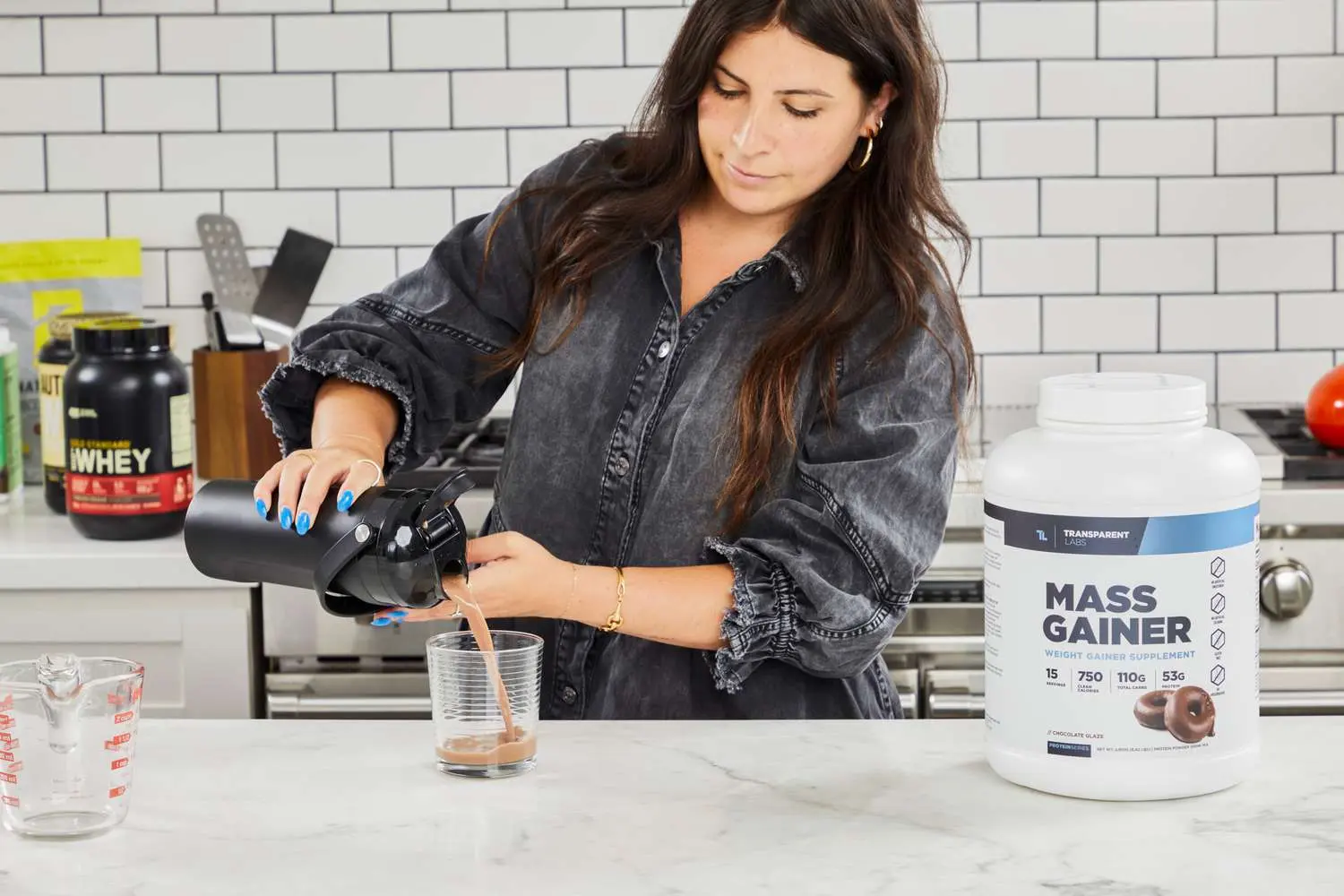In the realm of health and fitness, protein is often hailed as the cornerstone for muscle building, recovery, and overall well-being. For women who are committed to their fitness journey, finding the best protein powder is a crucial step towards achieving their goals. With an overwhelming array of options available in the market, choosing the right protein powder can be a daunting task. Fear not, as this comprehensive guide will walk you through everything you need to know to make an informed decision and empower you to embrace the world of protein with confidence.
Table of Contents
Understanding the Importance of Protein for Women’s Health
Protein is not only the building block of muscles but also essential for various bodily functions, including hormone regulation, immune system support, and maintaining healthy hair and skin. Women, just like men, benefit significantly from incorporating an adequate amount of protein into their diet.
The Role of Protein in Hormone Balance
Beyond muscle building and recovery, protein plays a crucial role in maintaining hormone balance. Hormones regulate many bodily functions, including metabolism, mood, and reproductive health. Consuming adequate protein helps support the production and regulation of hormones, ensuring that your body functions optimally. This is particularly important for women, whose hormonal needs fluctuate throughout different life stages, such as menstruation, pregnancy, and menopause.
Different Types of Protein Powders
To cater to diverse dietary preferences and requirements, various types of protein powders are available. Each type has its unique characteristics and benefits. Let’s explore some of the most popular options:
1. Whey Protein
Derived from milk, whey protein is a complete protein containing all essential amino acids. It is quickly absorbed by the body, making it an excellent choice for post-workout recovery. Studies have shown that whey protein may contribute to fat loss and enhance muscle growth, making it a staple for those aiming to improve body composition.
2. Plant-Based Proteins
Ideal for vegetarians and vegans, plant-based proteins such as pea, hemp, and brown rice protein offer a cruelty-free alternative. They provide a complete amino acid profile and are easily digestible. Plant-based proteins are often rich in antioxidants and fiber, contributing to overall health and well-being.
3. Collagen Protein
Known for its benefits for skin health, collagen protein is derived from animal connective tissues. It supports joint health, hair, and nail growth. Collagen protein is a fantastic option for women looking to enhance their beauty from the inside out.
4. Soy Protein
Soy protein is a complete protein source derived from soybeans. It contains all essential amino acids and has been linked to various health benefits, including heart health and menopausal symptom relief. Soy protein is an excellent choice for those with lactose intolerance or allergies to dairy.
Tips for Incorporating Protein Powder into Your Diet
Adding protein powder to your daily routine can be simple and enjoyable. Here are some tips to help you incorporate it seamlessly:
Smoothies and Shakes: Blend protein powder with fruits, vegetables, and a liquid base like almond milk for a nutritious and delicious smoothie.
Baking: Add protein powder to your favorite baking recipes, such as muffins, pancakes, and energy bars, to boost their protein content.
Oatmeal and Yogurt: Stir a scoop of protein powder into your morning oatmeal or yogurt for a protein-rich breakfast.
Soups and Sauces: Mix unflavored protein powder into soups and sauces to enhance their nutritional value without altering the taste.
Factors to Consider When Choosing the Best Protein Powder
Now that we’ve covered the main types of protein powders, let’s delve into the factors to consider when selecting the best protein powder for women:
1. Dietary Preferences and Restrictions
Consider your dietary preferences and any restrictions you may have. If you’re vegetarian or vegan, plant-based protein powders like pea protein or hemp protein might be more suitable. For those with dairy allergies, soy protein or other non-dairy options should be prioritized.
2. Nutritional Content
Check the nutritional content of the protein powder. Ensure it provides an adequate amount of protein per serving, along with essential vitamins and minerals. Look for options with added benefits, such as vitamin D for bone health or probiotics for digestive support.
3. Flavor and Texture
The taste and texture of a protein powder can significantly impact your overall experience. Many products come in various flavors, from classic chocolate and vanilla to more unique options like salted caramel. Consider trying sample sizes or reading reviews to find a flavor that suits your palate.
4. Additives and Allergens
Examine the ingredient list for any additives, preservatives, or allergens that may be present. Opt for protein powders with minimal additives and natural sweeteners. For those with sensitivities, choose products labeled as gluten-free or dairy-free.
Understanding Protein Digestibility
Not all protein powders are created equal when it comes to digestibility. The Protein Digestibility Corrected Amino Acid Score (PDCAAS) is a valuable metric that measures protein quality based on amino acid requirements and digestibility. For instance, whey protein typically has a high PDCAAS, indicating excellent digestibility and amino acid content.
Plant-based proteins vary in their scores, with some blends designed to improve their overall quality. Understanding digestibility helps you choose a protein powder that your body can efficiently use, maximizing the benefits.
Step-by-Step Guide to Choosing the Best Protein Powder
Step 1: Identify Your Fitness Goals
Before diving into the world of protein powders, define your fitness goals. Whether you’re aiming for muscle gain, weight loss, or overall health improvement, knowing your objectives will guide your protein powder selection.
Step 2: Understand Your Dietary Needs
Consider any dietary restrictions or preferences you may have. If you follow a vegetarian or vegan diet, prioritize plant-based protein powders. For those with lactose intolerance, opt for dairy-free options.
Step 3: Research the Different Types of Protein
Familiarize yourself with the various types of protein powders available. Understand their sources, nutritional profiles, and potential benefits. This knowledge will empower you to make an informed decision based on your specific needs.
Step 4: Read Reviews and Test Samples
Explore reviews from other women who have tried the protein powder you’re interested in. Additionally, many brands offer sample sizes, allowing you to taste the product before committing to a full-sized container.
Step 5: Consider the Price and Value
While quality is essential, consider the price per serving to ensure the protein powder aligns with your budget. Some premium products may be worth the investment, especially if they offer additional benefits like added vitamins and minerals.
Step 6: Check for Certifications and Quality Standards
Look for certifications and quality standards on the product label. Certifications such as NSF Certified for Sport or Informed-Choice Certified indicate that the product has undergone rigorous testing for quality and safety.
Step 7: Consult with a Nutritionist or Healthcare Professional
If you have specific health concerns or conditions, it’s advisable to consult with a nutritionist or healthcare professional before introducing a new supplement. They can provide personalized advice based on your individual needs.
Conclusion
Armed with the knowledge of different protein types and the factors to consider, you’re now ready to embark on your journey to find the best protein powder for women. Remember, there’s no one-size-fits-all solution, so take the time to explore and experiment with different options until you find the perfect match for your taste buds and fitness goals.
Choosing a high-quality protein powder is an investment in your health and fitness journey. Whether you opt for the rapid absorption of whey protein, the plant-powered benefits of pea protein, or the collagen-boosting properties of collagen protein, make your choice with confidence. With the right protein powder by your side, you’ll be fueling your body for success and reaching new heights in your fitness endeavors.
The best protein powder for women is the one that aligns with your goals, preferences, and lifestyle. Now that you’re armed with this comprehensive guide, go forth and make an informed decision that will propel you towards a healthier and stronger version of yourself.
Frequently Asked Questions (FAQs)
Is whey protein suitable for women, or is it primarily for men and bodybuilders?
Whey protein is suitable for both men and women. It is a complete protein source that aids in muscle recovery and growth. Women can benefit from whey protein, especially after workouts, as it helps meet their protein requirements without adding excessive calories.
Can plant-based protein powders provide enough protein for muscle building?
Yes, many plant-based protein powders, such as pea, hemp, and brown rice protein, offer a complete amino acid profile necessary for muscle building. Plant-based options can be an excellent choice for women, providing an ethical and sustainable protein source.
Are there any side effects associated with collagen protein for women?
Collagen protein is generally well-tolerated, but individual responses may vary. Some users report improvements in skin, hair, and joint health, while others may experience digestive discomfort. It’s advisable to start with a smaller dose and monitor how your body responds.
How do I know if a protein powder is free from allergens like gluten or dairy?
Check the product label for allergen information. Protein powders often indicate if they are gluten-free or dairy-free. Additionally, reputable brands typically provide detailed information about their products on their websites, including allergen statements and certifications.
Can I use protein powder as a meal replacement for weight loss purposes?
While protein powder can be a convenient and nutritious addition to your diet, it’s not recommended to use it as the sole meal replacement for weight loss. Whole foods offer a broader range of nutrients. Use protein powder as a supplement to support your overall nutrition and fitness plan.



